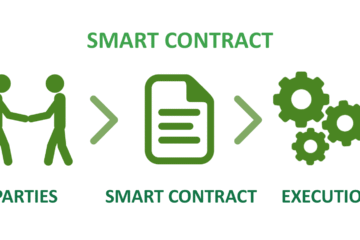Are You Losing Money Because of Boredom? Patience Is the Art of Trading

For those who trade full-time or squeeze in trades after work, you’ve likely faced those maddening days: glued to your screen, staring at price charts, waiting for a signal to trigger. You sit there for four hours, eyes locked on an X-minute chart crawling along like a soul-draining specter, sapping your joy and drive. And in all that time, no signal appears.
Eventually, you can’t take it anymore. You step out for a smoke, grab lunch at the bakery next door, or take a quick bathroom break. But when you return, there it is—a textbook-perfect signal you missed. Frustrated, you sit back down, stare at the screen for another four hours, and face the same agonizing, mind-numbing price action. Boredom creeps in. You feel like you’ve wasted your day, thinking, “I spent all this time and did nothing.” Your brain chimes in: “Trading is your job, and you haven’t made a single trade. You’ve accomplished nothing.”
Determined not to end the day empty-handed, you start browsing altcoins, looking for something “decent” to take a chance on. You pick one, enter a trade, and lose $1,000.
You’re so furious you could smash your keyboard.
Letting these emotions drive you to make trades that break your rules can turn into a trader’s nightmare. Boredom and idleness often push people to trade without an edge or a plan—almost guaranteeing losses. Even if your strategy has an edge, historical data shows that sticking to it will lead to profits over time. Your job is to execute that strategy and let your capital grow steadily. But some traders, impatient for quick gains, crank up leverage, lose more than they planned, and derail their entire strategy.
“The hardest trade is the one you don’t take.”
Trading is a game of patience, waiting for the market to offer the right moment to act.
As many traders have said: “I spend 2% of my career placing trades and 98% waiting for the right opportunity.”
If you have a high-win-rate system, why do anything but wait?
The ideal profit-and-loss (PNL) curve for most traders looks like this: slow, steady growth with occasional sharp spikes when you seize rare opportunities with confidence and heavier positions.
Trading is a long-term battle. Not every day brings opportunities, and not every day is profitable. Your primary goal is to survive long enough to capitalize on the big moments.
As the Twitter user mgnr famously put it:
In discretionary investing,
the right position is almost always flat,
the right action is almost always inaction,
there are 5 “easy money” opportunities a year,
pick them up,
then go back to doing nothing to outperform the market.
Sure, if you’re a scalper, this advice might not apply. But you can still draw inspiration from it, recognizing that most of your portfolio’s growth comes from those rare, high-conviction, heavily weighted trades. Until those moments arrive, your job is to preserve capital with strict discipline.
What to Do When Boredom Strikes?
If boredom is overwhelming, here are some ways to stay productive:
In my upcoming article, “Getting Started with a Trading Journal,” I explain that a trading journal’s main purpose is to help you answer three key questions:
- How can I make my winning trades more profitable?
- How can I reduce losses on losing trades?
- How can I create more profitable trading opportunities?
Keep working to refine your edge and uncover new signals. This gives you more “work”—more trading opportunities—while keeping you engaged. If you don’t want to tweak your strategy, pick up a hobby. Play video games, go for a run, post funny memes on Twitter, chat with friends on Discord, or try poker. Anything works.
Personally, I play Legend of Mir or some PS5 games.
So, What’s the Solution?
Unfortunately, there’s no perfect fix for boredom.
For me, the best approach is to promise myself that no matter how bored I get, I’ll only trade according to my strategy or when the right moment arrives—not because I’m restless.
Never trade just to “do something” or out of boredom. That’s gambling. We trade to make positive expected-value bets. If I want to gamble, I’ll play blackjack.
Stay in control. If you feel yourself slipping, step away from the market before making reckless decisions. Countless traders have been burned by impatience—don’t be one of them.










